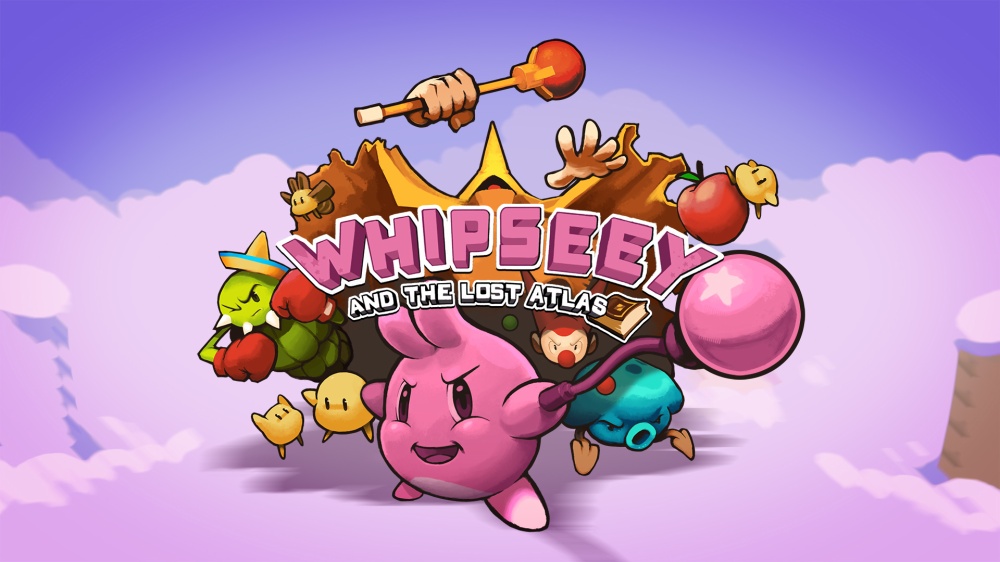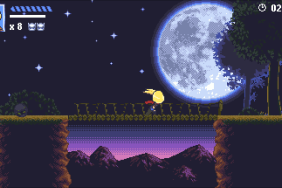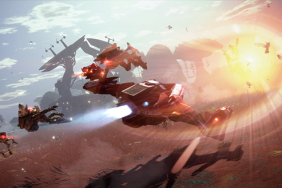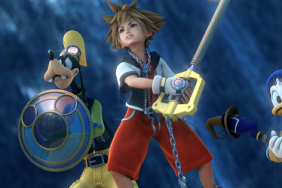It’s not unfair to draw comparisons to Masahiro Sakurai’s Kirby’s Dream Land upon loading Whipseey and the Lost Atlas onto the PlayStation 4. This multiplatform platformer is so obviously inspired by HAL Laboratory and Nintendo’s pink mascot and his numerous adventures; from the simplistic but cute character design to the colourful levels and boss encounters. Even Whipseey himself is pink! But unlike Kirby’s Dream Land, or later entries in the main Kirby series, Whipseey and the Lost Atlas has little replay value.
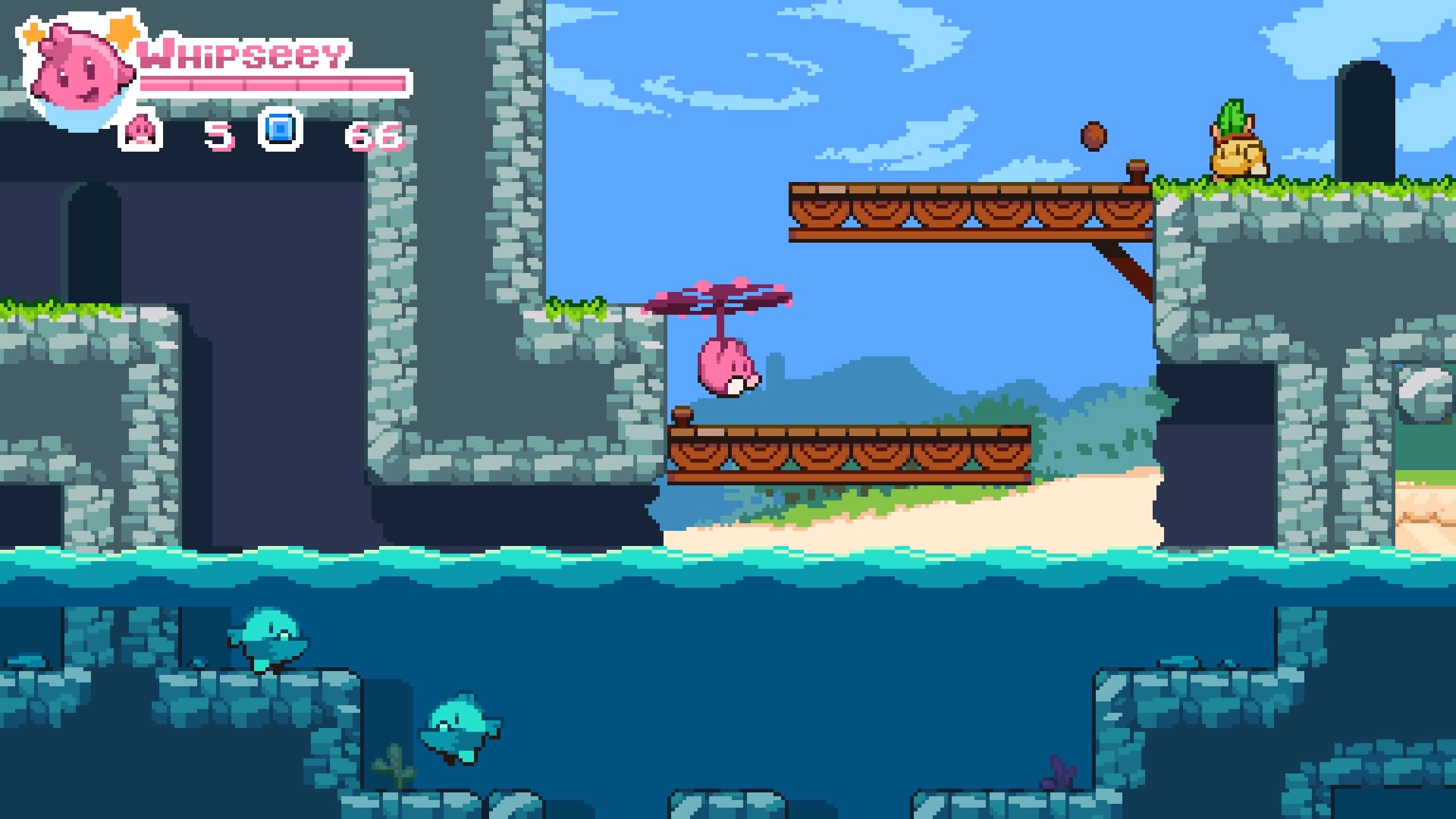
Doppelgänger’s Return to Dream Land
Picking up your DualShock 4 gamepad, you take control of Alex; a young boy who has found himself transported to a strange world, and transformed into an even stranger creature. Now, as the magical Whipseey, you must solve the mystery of the Lost Atlas if you wish to return to your original form and go home. With this simple premise, Whipseey and the Lost Atlas immediately drops you into its 16-bit styled world.
Whipseey’s new world consists of five stages, and at the end of each stage, you must face one of the Lost Atlas’ devious bosses. But be warned… Whipseey only has five lives and when all are lost, the player must start the stage again from the beginning, even if you have made it to the boss fight! Luckily for you, Whipseey has three abilities he can use to overcome his enemies: Whip! Swing! Glide! Pummeling your enemies also releases gems which can then be collected to gain an extra life. 100 gems = 1 life.
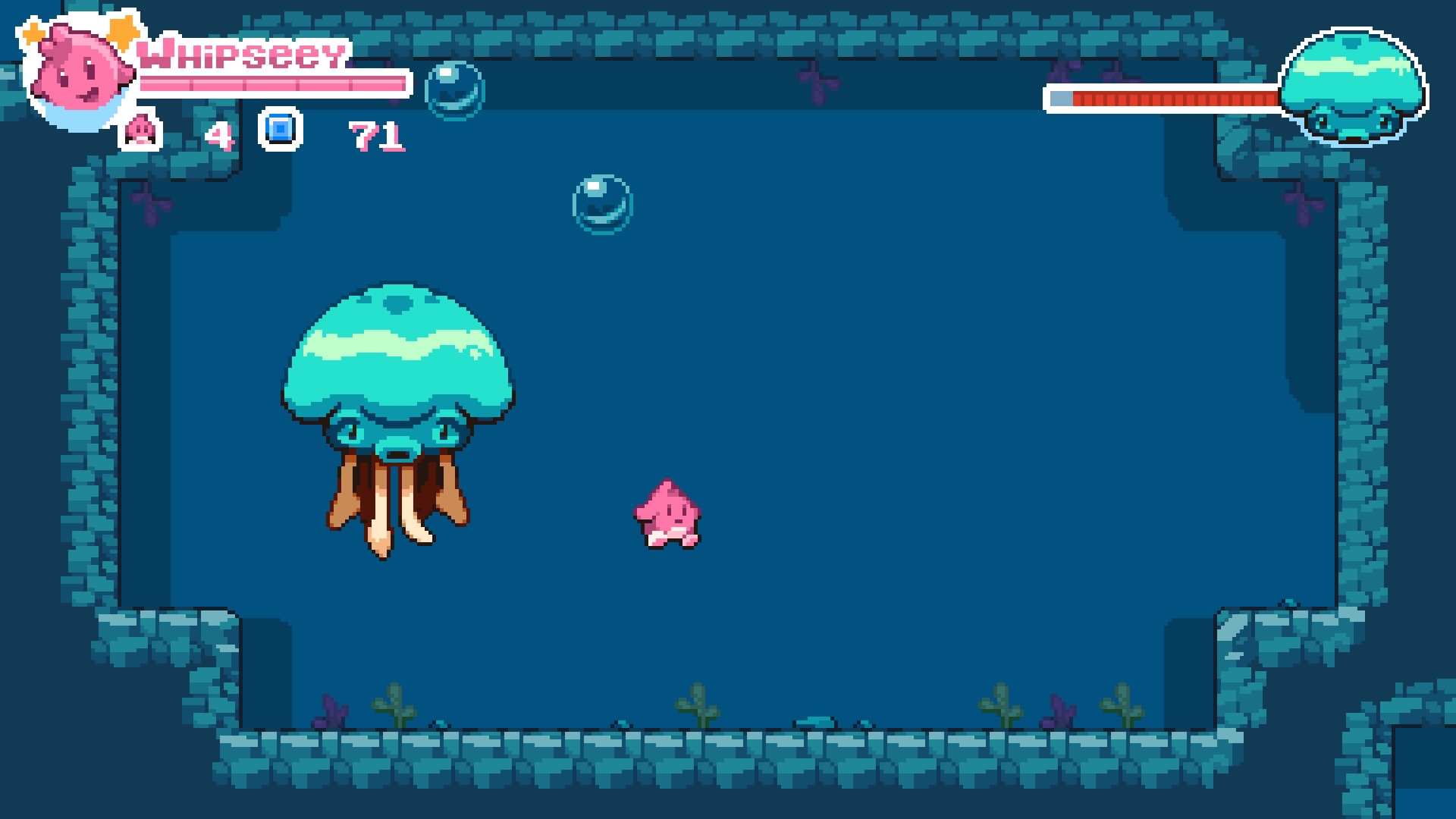
Doppelgänger Super Star
Each stage can be challenging, and enemy placement and attack patterns must be learned in order to succeed. But once you know how to navigate the Lost Atlas, Whipseey’s adventure is woefully short. In a single run, each stage is roughly less than ten minutes long; including boss battles! Yes, an entire playthrough of Whipseey and the Lost Atlas can take you no more than an hour to complete, and there are no secret levels. No New Game+.
The 1992 action platformer Whipseey was inspired by was made for the Game Boy; a handheld game console. Kirby’s Dream Land was suited to this portable device, where it could be played in short increments. Due to its short length one wonders if Whipseey would be more enjoyable on Nintendo’s Switch in handheld mode? Note: Whipseey and the Lost Atlas is also available on the Switch, Xbox One, and Steam.
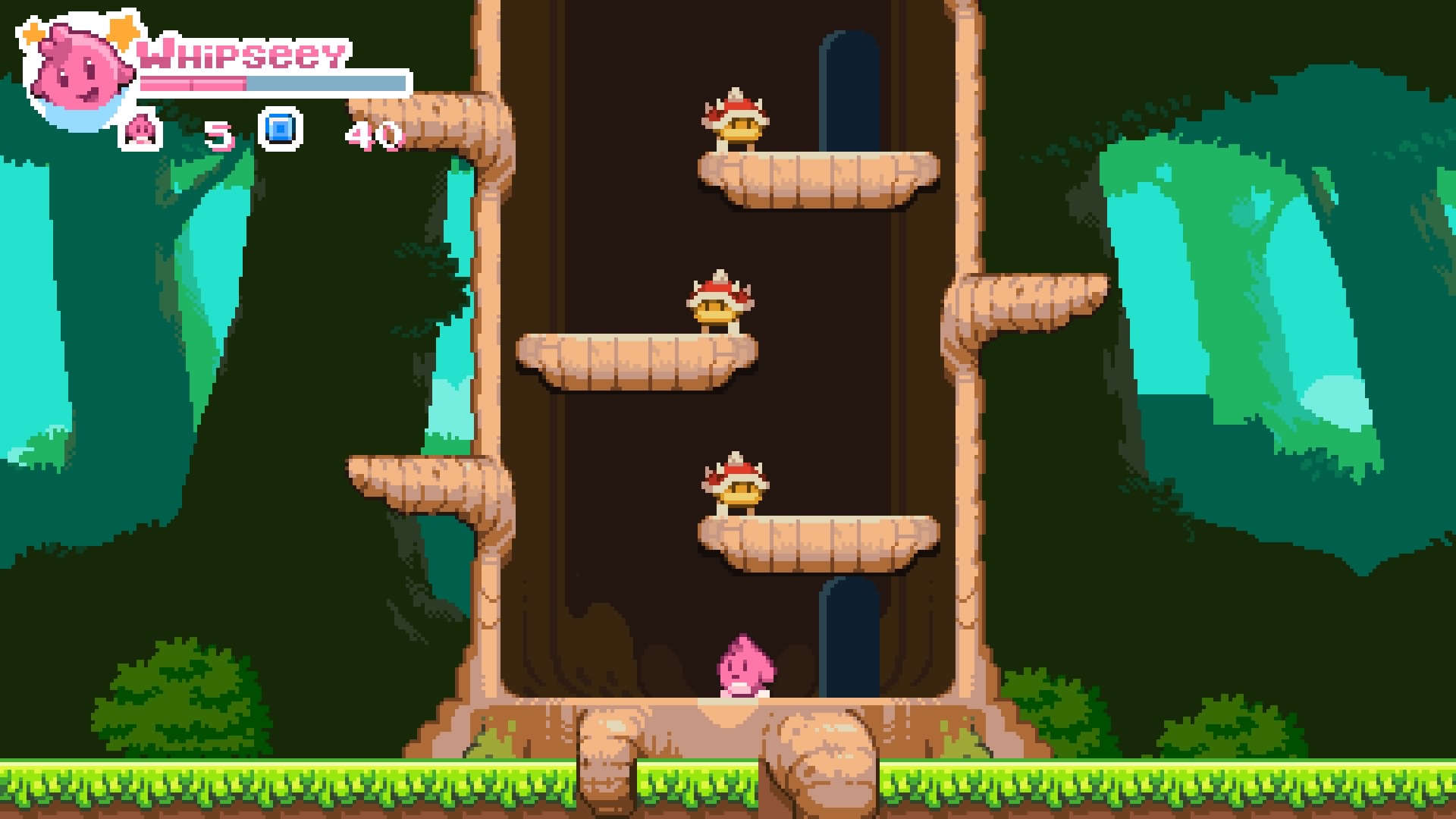
Doppelgänger’s Adventure
Kirby’s Dream Land is also not Whipseey’s only influence. Certain enemies look as though they have been plucked from Nintendo’s Super Mario World, and those aforementioned attack patterns? Did Blowfish Studios play Capcom’s Mega Man series? (Whipseey does have a more forgiving difficulty curve, however!) Visually everything looks beautifully retro, but unfortunately all too familiar.
The problem with Whipseey and the Lost Atlas is that it doesn’t do anything to differentiate itself from the platformers it has clearly been inspired by. And despite looking, sounding and controlling wonderfully, Blowfish Studio’s two dimensional platformer invites unflattering comparisons due to its lack of originality. It may be a fun way to spend an hour, but here is a reminder… Kirby’s Adventure is an NES game from 1993 that is more than twice the length of Whipseey and the Lost Atlas.
Whipseey and the Lost Atlas review code provided by publisher. Reviewed on a PS4. For more information on scoring, please read our Review Policy.
-
Cute 16-bit styled graphics
-
Challenging gameplay
-
Unoriginal character and level design
-
Woefully short in length
